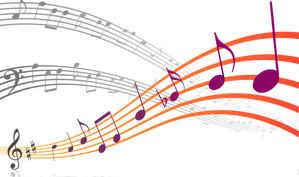- 50 States
- » Histories
- » State Symbols
- » Songs
Iowa State Song
"Song of Iowa"
Written by S.H.M. Byers
To the music of Tannenbaum
Adopted on June 30, 1949.
The song, "Song of Iowa," words by Samuel Hawkins Marshall (S.H.M.) Byers and traditional melody of "O, Tannenbaum," was adopted by the Iowa Legislature as the Iowa state song on March 20, 1911.
Iowa State Song: "Song of Iowa"
"Song of Iowa"
You asked what land I love the best, Iowa, tis Iowa,
The fairest State of all the west, Iowa, O! Iowa,
From yonder Misissippi's stream
To where Missouri's waters gleam
O! fair it is as poet's dream, Iowa, in Iowa.
See yonders fields of tasseled corn, Iowa in Iowa,
Where plenty fills her golden horn, Iowa in Iowa,
See how her wonderous praries shine.
To yonder sunset's purpling line,
O! happy land, O! land of mine, Iowa, O! Iowa.
And she has made whose laughing eyes, Iowa, O! Iowa.
To him whose loves were Paradise, Iowa, O! Iowa
O! happiest fate that e'er was known.
Such eyes to shine for one alone,
To call such beauty all his own. Iowa, O! Iowa
Go read the story of thy past. Iowa, O! Iowa
What glorious deeds, what fame thou hast! Iowa, O! Iowa
So long as time's great cycle runs,
Or nations weep their fallen ones,
Thou'lt not forget thy patriot sons, Iowa, O! Iowa
Origin of Song: "Song of Iowa"
There is frequently much confusion as to the status of the so-called state songs, due largely to the fact that they may be chosen by official action, by popular approval, or by a combination of the two methods. In the Middle West particularly, where state boundaries are artificial and the population has constantly shifted, it is not surprising that there should be much uncertainty. There have been many aspirants to the honor of writing the state song for Iowa, but only three or four of these songs have received noteworthy official or popular recognition.
First in point of time and official recognition is The Song of Iowa, the words of which were written by S.H.M. Byers, who give the following account of the inspiration of the song:
"At the great battle of Lookout Mountain I was captured, in a charge, and taken to Libby Prison, Richmond, Va. I was there seven months, in one room. The rebel bands often passed the prison, and for our discomfiture, sometimes played the tune 'My Maryland', set to southern and bitter words. Hearing it once through our barred window, I said to myself, 'I would like some day to put that tune to loyal words.'"
Many years later, in 1897, Mr. Byers carried out his wish and wrote a song to the music of Tannenbaum, the old German folk-song which the Confederates had used for My Maryland. The next night a French concert singer at the Foster Opera House in Des Moines sang the new song upon the request of Mr. Byers. The number was a great success and was encored again and again.
While Major Byers thus had the honor of writing Iowa's official song, the best known and most popular song of the state is the famous "Iowa Corn Song," which every loyal son and daughter of the Hawkeye State sings lustily on any and all occasions, reaching their hands as high toward Heaven as they possibly can when the words roar forth "That's where the tall corn grows."
This famous song was written by George Hamilton, secretary of the Des Moines Chamber of Commerce and a big man in the Masonic Lodge, particularly among Shriners, with later help from Prof. John T. Beeston, the well known band leader; sung to the tune of "Traveling."
George Hamilton started the song back in 1912 when a delegation of Za-Ga-Zig Shriners had gone to Los Angeles, California, to participate in the huge Shrine convention, and it was realized that what Iowa needed was a rousing marching song, which should advertise the chief product of the state: Corn. So Hamilton wrote the original stanza, dealing mainly with the glories of the Shrine, and tacked on the original and still-intact chorus, which is far the best known and most rousing part of the song.
Resources:
Iowa Official Register 1997-1998.
House Concurrent Resolution
On March 20, 1911, "Song of Iowa" was recognized as the Iowa state song by concurrent resolution.
Whereas, the patriotic song of Iowa by S. H. Byers, has, for years, been sung in all the schools of the State, and on thousands of public occastions, political and social, an
wherever Iowas people com together in other States
Therefore, Be it Resolved by the House, the Senate concurring, that it be hereby declared to be recognized as the State Song.








